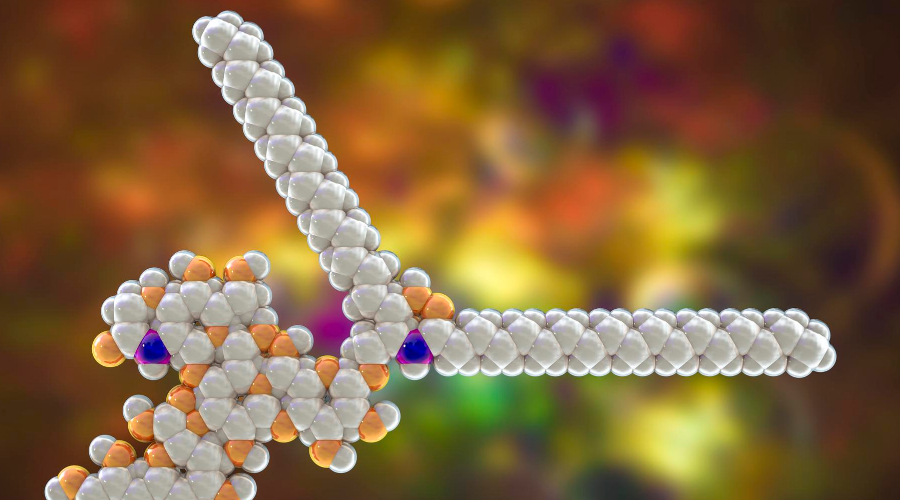Polymorphism Testing
Schedule a MeetingCharacterisation of Polymorphic FormsPolymorphism
Crystalline forms have different conformations of the molecules in the crystal lattice. Amorphous forms consist of disordered arrangement of molecules that do not possess a distinguishable crystal lattice.
Solvates are crystal forms containing either stoichiometric or non-stoichiometric amounts of a solvent. If the incorporated solvent is water, the solvates are commonly known as Hydrates.
Polymorphism play an important role in chemical research, where complete characterization of a material has vital role in applications of foods, Pharmaceuticals & fine chemicals, dye stuffs, pigments, agrochemicals, polymer and explosives.

Polymorphic form exists in different crystalline shapes, the common crystals structures are given below-
- Cubic
- Hexagonal
- Tetragonal
- Orthorhombic
- Monoclinic and
- Triclinic
Characterization of Polymorphism
NRPL adopts various methods to characterize Polymorphic forms of a given sample. Which includes, Thermal analysis like DSC (Differential scanning calorimeter), DTA (Differential thermal analysis), TGA (Thermo gravimetrical analysis), Spectroscopic techniques like FTIR (Fourier-transform infrared spectroscopy) and powder XRD (X-ray powder diffraction) and single crystal XRD.
Thermal properties of polymorphs are important features to characterize the polymorph, which can be obtained by applications of instrumental techniques like DSC/DTA ad TGA. They generally give a valuable data like Melting points (MP), Glass transitions temperature (TG) and energy taken during MP & TG.
FTIR give valuable information of functional groups present in given sample along with data of changes in frequencies, relative intensities, bad contours, and number of bands. Differences in spectra of FTIR are attributed to internal molecular arrangement in crystal.
Thermal properties of polymorphs are important features to characterize the polymorph, which can be obtained by applications of instrumental techniques like DSC/DTA ad TGA. They generally give a valuable data like Melting points (MP), Glass transitions temperature (TG) and energy taken during MP & TG.
FTIR give valuable information of functional groups present in given sample along with data of changes in frequencies, relative intensities, bad contours, and number of bands. Differences in spectra of FTIR are attributed to internal molecular arrangement in crystal.

Raman spectra, FTIR & XRD are non-destructive analytical techniques, while thermal techniques are destructive. XRD is most widely used reliable analytical technique for characterization of various crystal forms. Through different patterns changes in spectral patterns of XRD such as peak shouldering, new peak (or) a shift in peak is ascribed to polymorphic transitions. Novel techniques like solid state NMR is used to evaluate morphological characteristics of crystal lattice changes as a function of various parameters such as Temperature, Nature of solvent, Rate of precipitation, Conditions of crystallization, inter conversion between solid forms (from solvate to un-solvate & vice versa) absorption and release of vapor pressure, pressure and mechanical treatment etc. Techniques like those that hot stage microscopy, DSC & micro-DSC scan be adopted to obtain an semi empirical energy-temperature diagram, that can be helpful in designing protocols for screening for crystal forms.
Apart from these traditional techniques for evaluating new crystal forms various other methods are used and developed in search for multiple crystal forms. These methods are base on established traditional knowledge reported in literature and application of crystal engineering principles (Based on hydrogen bonding patterns) for new multi component solids.
Why ChooseNishka Research
We go beyond basic analysis by combining thermal techniques (DSC, DTA, TGA), spectroscopy (FTIR, Raman), X-ray diffraction (XRD and single crystal XRD), and solid-state NMR to deliver detailed insights into both crystalline and amorphous forms. Our team is skilled at identifying and characterizing polymorphic transitions, solvates, and hydrates with precision and depth.
What sets us apart?
- Non-destructive & destructive analysis tailored to your sample type.
- Expertise in complex polymorphic systems and multi-component crystals.
- Advanced techniques like hot-stage microscopy and micro-DSC.
- Scientific protocols guided by crystal engineering principles and literature-backed methods.
- Proven experience in mapping out energy-temperature diagrams for screening solid forms.
Whether you’re developing a new drug, optimizing a formulation, or validating product consistency, Nishka Research offers the expertise, technology, and attention to detail that ensures reliable outcomes.
Looking for a trusted partner to achieve your research goals? schedule a meeting with us, send us a request, or call us at +91 78427 98518 to learn more about our services and how we can support you.
Need help or have a question?

Nishka Research Brochure
We deliver next-gen research services, Testing & Consultation know more..
